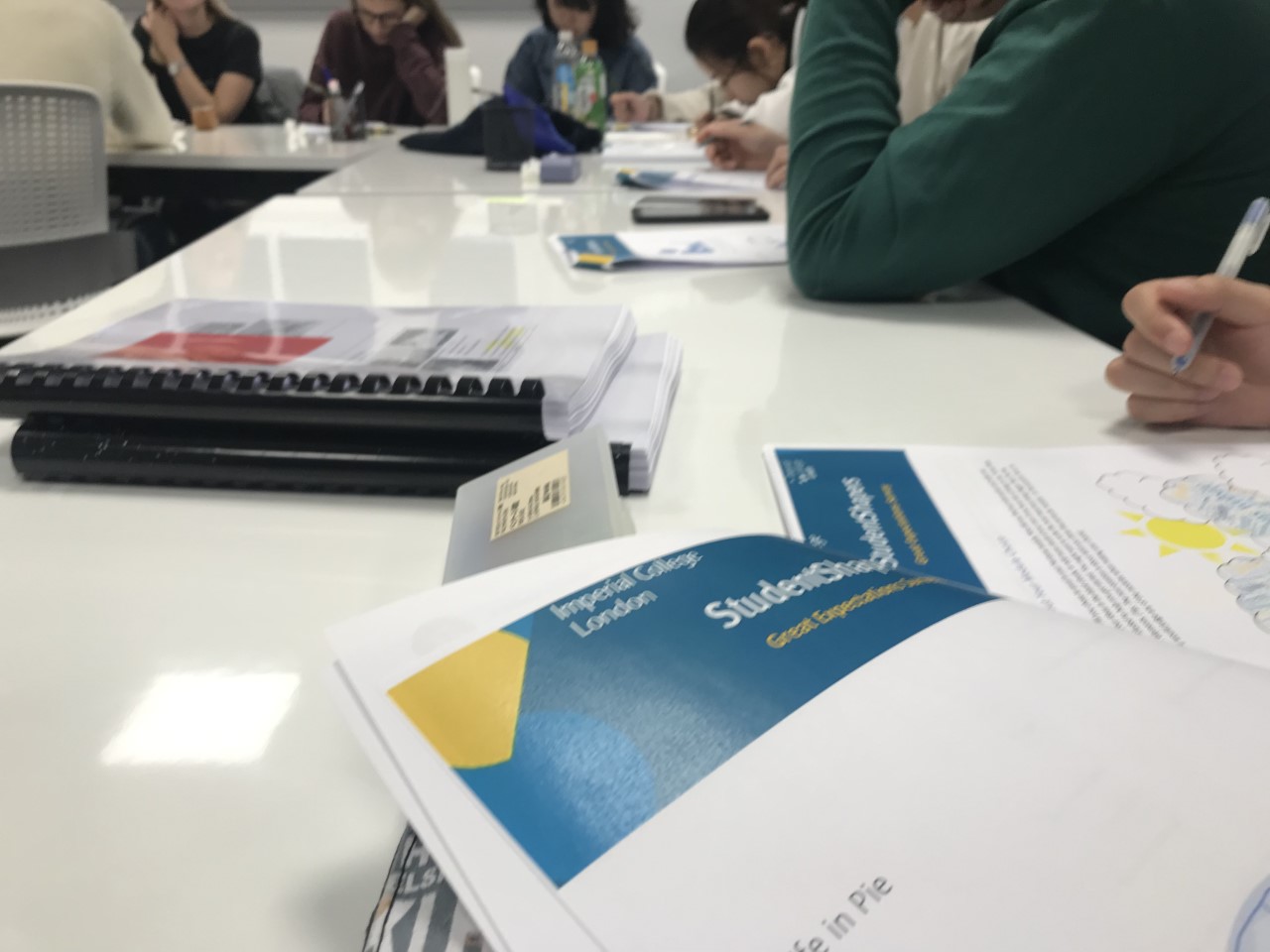This research project was funded by Imperial Student Shapers and the project leader was Cleo Bowen, Change Makers Administrator, Change Makers.
The staff and student partners included Cleo Bowen, Elizabeth Hauke, Emily Cao, Sofia Gonzalez Garcia, Louise Li, Moe Thu Kha, Junzheng Wang and Haozhe Zhang.
Introduction
This project is a paper-based survey of 2019-20 Change Makers students exploring why and how they selected their module and their expectations of what the module will entail (mixed written and visual responses), followed up with a finishers survey to capture follow-up responses regarding the actual learning experience.
The Change Makers programme offers 11 Imperial Horizons modules each year, which are all designed to encourage student-led learning via partnership curricula.
We have been developing and offering this set of modules for seven years, and as such we have a growing base of research and evaluation that demonstrates their pedagogical and institutional value. However, the nature of the modules is difficult to describe to students unused to this type of learning experience.
We have spent a lot of time refining and developing module descriptions, including the use of student focus groups who feel that the module descriptions are accurate. Despite this, students still report that their experience differs from what they were expecting.
One of the primary reasons students give for withdrawing from or not completing their module, (after time-pressures) is that the module was
not what they expected. Conversely, much of the positive feedback received via SOLE for Horizons indicates that modules “exceeded their expectations” or broadened their thinking in ways that they could not have anticipated. Students have described the impact that completing a module has had on
their own outlook, approach and skills, personally as well as academically.
A significant focus of Change Makers teaching is that a student’s final piece of work is less important than how they went about making it and their learning journey. Conveying this to the students themselves can be difficult.
Change Maker modules are very much aligned with the College’s Teaching and Learning Strategy, in particular the objective of Active Learning Pedagogy and giving students responsibility for their own learning. Change Makers modules are delivered in non-didactive manner, based on tasks which enable students to be partners in their learning and have the core aims of developing creativity, critical thinking and problem-solving skills.
We believe that the best way to capture the student perspective of the learning experience and to be able to better communicate the nature and value of these modules to future students is to capture contemporaneous perspectives via student partners.
Aims
The aims of this project are two-fold – firstly to gather details of student expectations at the start of our second and third/fourth year modules. This will be achieved in a mixed-media/mode questionnaire – with a range of qualitative and quantitative questions, alongside some open-ended creative and visual data capture.
Secondly, students that complete our modules will be asked to reflect on their expectations and their experience at the end of the modules in a similarly styled but collaborative questionnaire – that students will respond to with their study teams.
Method
Following an initial briefing, introduction to the aims of the research and to the ethical considerations of this project, the lead staff partner will lead a discovery session with the student partners to consider what types of questions the students feel might be relevant to include, along with developing some ideas about the style of the questionnaire.
The student partners (with staff support) will have the opportunity to introduce and administer their questionnaire to all second and third/fourth year module cohorts in their first session of the year.
All partners will be involved in preliminary data analysis and development of the follow up questionnaire.
Ethical approval for this work was granted by EERP, Imperial College.
Note on the impact of Covid 19
The global pandemic interrupted this piece of research following the initial data collection.
The lockdown was implemented prior to administration of the second questionnaire. Considerable planning had been put into developing a rich and collaborative style of questionnaire that was highly interactive.
It was not possible to deliver this questionnaire online, and so a further version of the follow up questionnaire was developed and delivered online.
We were very aware that amidst the stress and uncertainty of the first lockdown our participation rate was likely to be low – both due to the online delivery and due to the ongoing situation.
The student partners considered the options of holding back the second questionnaire and applying this to a new cohort of students the following year (with the disadvantage of surveying two different student groups), repeating the whole data collection process with both questionnaires the following year (to retain continuity of the surveyed group), or adapting the questionnaire, accepting that it might not yield the data that was hoped for and completing the research as best as possible during this time. The students voted for the third option and put considerable time and effort into making this work. They even made video messages to explain the situation to their research participants and encourage them to complete the online survey.
As such, the students exceeded their time commitment to the project and the funding and therefore completed only some basic analysis of the second survey (the paper questionnaires are still locked in an office and inaccessible on campus).
